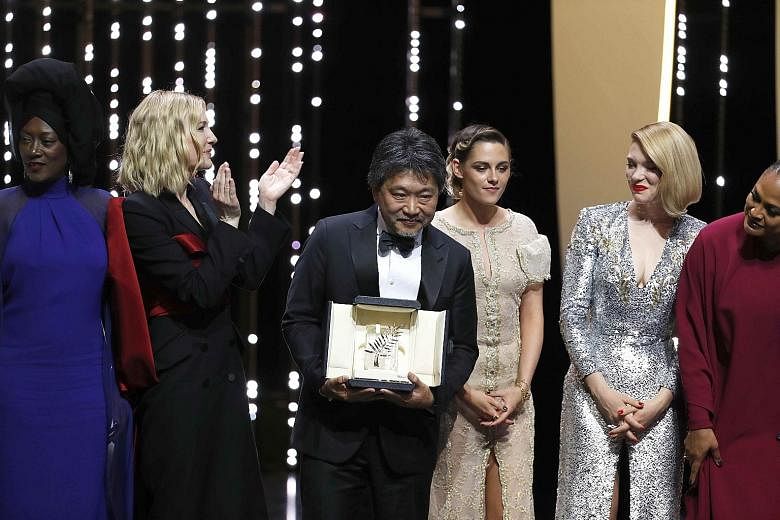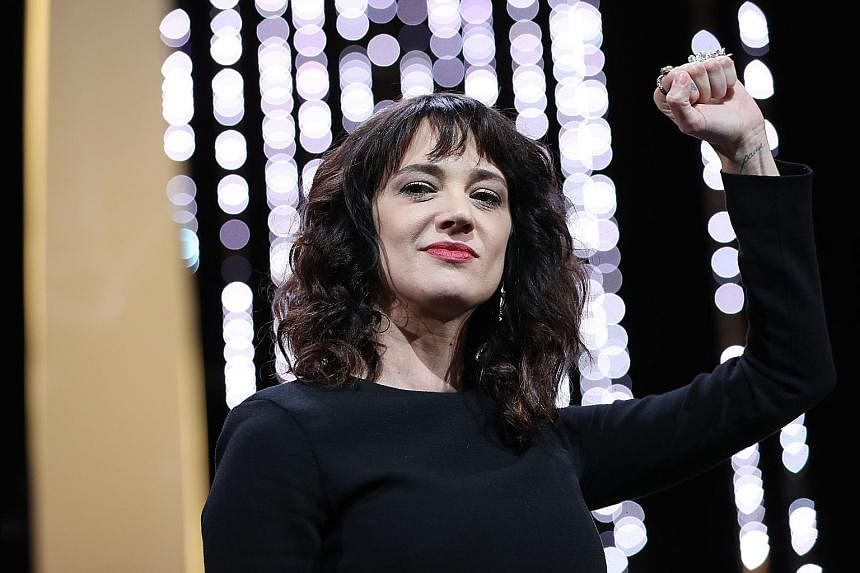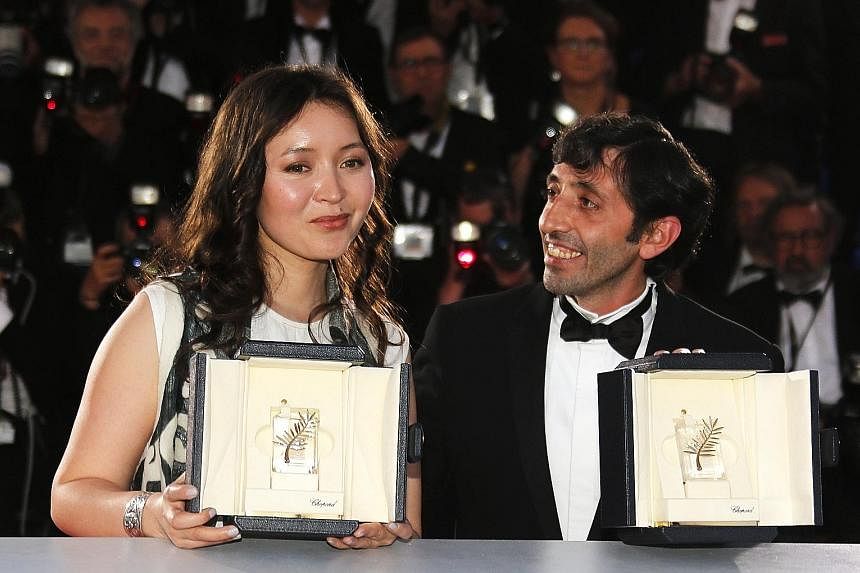CANNES • Japanese director Hirokazu Kore-eda won the Palme d'Or at the Cannes Film Festival last Saturday for Shoplifters, a heartrending tale about a family of small-time crooks who take in a child they find on the street.
He accepted the award, the festival's highest honour, at the end of a sober event that was shaken up 30 minutes in when Italian director Asia Argento delivered a shattering rebuke to the festival from the stage.
"In 1997, I was raped by Harvey Weinstein here at Cannes. I was 21 years old. This festival was his hunting ground," Argento said.
She predicted he would never again be welcomed here by a film community that once embraced and enabled him.
The fierce Argento added that there were those in the auditorium who needed to be held accountable for their conduct towards women.
"You know who you are," she said, "but, most importantly, we know who you are and we are not going to allow you to get away with it any longer."
The stunned audience responded with subdued applause. It was a powerful moment that came a week after 82 women - representing the small number of films by female directors that have competed in the festival over the years - rallied on the red carpet to denounce gender inequality in the industry.
But Kore-eda's win defied speculation that the Palme might go to a female director.
The female-dominated jury for the main competition was led by Australian actress Cate Blanchett, who said of the acclaimed, affecting Shoplifters after the ceremony: "Women and men alike on the jury would love to see more female directorial voices represented. But in the end, I think we were completely bowled over by how intermeshed the performances were with the directorial vision."
Kore-eda, 55, last scored an international arthouse hit with his baby-swop tale, Like Father, Like Son, which won the Jury Prize at Cannes five years ago.
For the first time in the festival's history, the jury presented a Special Palme d'Or, which was given to Jean-Luc Godard, for his film The Image Book. Blanchett praised the movie for "defining and redefining cinema". Godard was not present.
Spike Lee won the Grand Prix, the festival's second prize, for BlacKkKlansman, a galvanising drama based on the strange, true-life story of a black detective who infiltrated the Ku Klux Klan in the 1970s and which is also an indictment of United States President Donald Trump.
As Lee accepted his award, he said that when journalists ask him about today's political climate, he invokes the title of Peter Weir's 1982 film The Year Of Living Dangerously.
The Jury Prize - the third prize - was given to Capharnaum, a story about a neglected 12-year-old boy from Lebanese director Nadine Labaki.
Polish film-maker Pawel Pawlikowski won Best Director for Cold War, which follows two lovers from the end of World War II into the 1960s across countries and shifting political realities.
The screenplay award was shared by Italian director Alice Rohrwacher's Happy As Lazzaro and Iranian director Jafar Panahi's 3 Faces. Both Panahi and Russian film-maker Kirill Serebrennikov had been banned from attending by their countries.
Kazakhstan's Samal Yeslyamova won Best Actress for her title performance in Sergey Dvortsevoy's nail-biter, Ayka, as a young jobless immigrant from post-Soviet Central Asia who abandons her baby in Moscow.
The Best Actor prize was given to Italy's Marcello Fonte, who starred as a cocaine-dealing dog groomer in Matteo Garrone's Dogman.
Fonte rather charmingly seemed reluctant to accept the prize, but, encouraged by the presenters, finally relented. It was one of the festival's few lighthearted moments.
NYTIMES, REUTERS, AGENCE FRANCE-PRESSE



